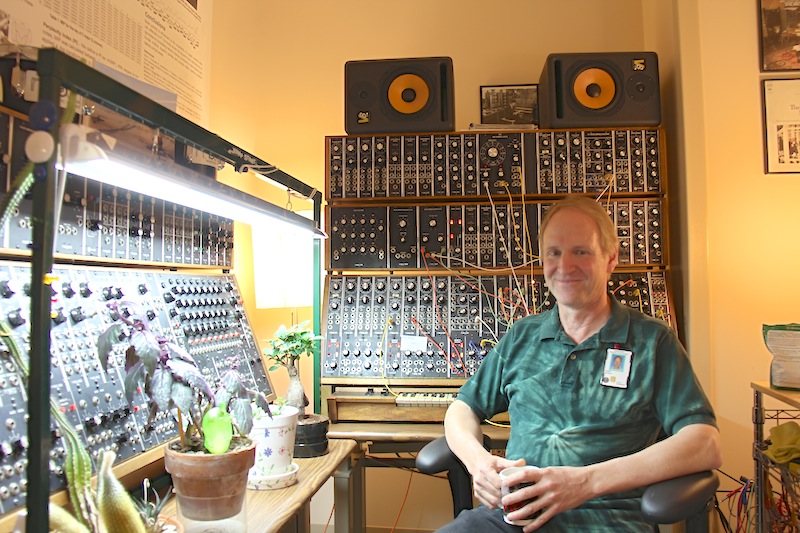
Roger Dumas was a synthesizer whiz kid back in the 70s. He wrote manuals for early Moog synthesizers, and he helped out Prince, Janet Jackson, and even John Lennon. He’s also the guy behind the catchy synths in the disco hit “Funkytown.” Now Roger has a new passion: studying the brain’s response to music. He’s done some pretty amazing work, including re-creating a melody out of the pure data from brain sensors. In this season premiere episode of Composer Quest, I talk with Roger about his research, his album based entirely on brain data, and his glory days in the music business.
[audio:https://charliemccarron.com/mediaftp/composerquest/composer-quest-110-roger-dumas.mp3]Right click to download Ep. 110, or open in iTunes.
You can find Roger Dumas’ album Pieces of Mind on iTunes, Amazon, or CD Baby. His jam band Gentlemen’s Music Club is on Soundcloud.
I’m looking forward to posting 11 more interviews this season, thanks to support from my wonderful patrons, and from our new sponsor, lynda.com (free 10-day trial here).




Quite a ride there. Loads of brain food over a wide area for a series 4 first episode!
One thing about uppy-downy ‘melodic arcs’ following gravity, as it were. I suppose, since Dr (Monsieur?) Dumas mentioned the ‘dictionary of musical themes’ it would be possible to do a statistical analysis of that corpus and do a broad classification with regard to melodic contour shapes and see if gravity’s rainbow is indeed the dominant shape?
It would also be interesting to see if the convexity/concavity/waviness of such contours were anything like Kurt Vonnegut’s storytelling curves. It’s hard to imagine his Kafka curve (starting at zero and immediately plummeting to minus infinity) turning up as a melodic contour.
Though, having said that, there’s that rather marvellous electronic corkscrew slowdown in the middle of Stockhausen’s Kontakte where the pitch drops so much that it becomes percussive.
Anyway – great ep!